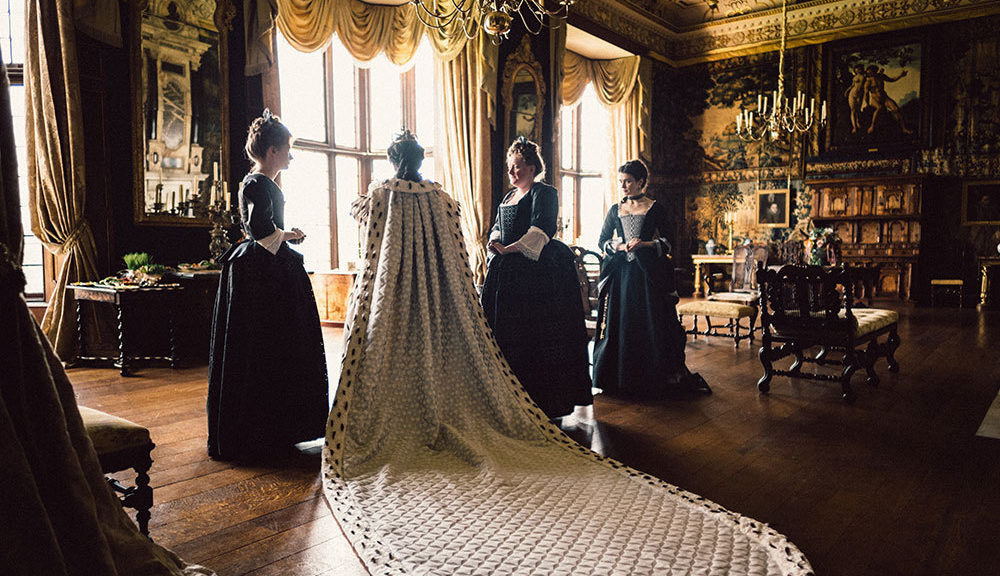Queen Anne, I found out after watching this completely accurate and not even slightly absurd historical comedy-drama, knighted my middlenamesake, Sir Isaac Newton, in 1705. True story.
Unfortunately, neither Sir Isaac nor his rumoured gayness feature in The Favourite. Queen Anne and her rumoured lesbianism feature prominently, however. Because there’s nothing like a same-sex love triangle to spice up an already fiendishly intriguing chapter in the English monarchy, amirite?
Rachel Weisz and Emma Stone are as excellent as you’d expect (especially Rachel as the rather badass Sarah Churchill), but Olivia Colman, who I’d only seen in a few “meh”-grade comedy roles until this movie, delivers a profoundly deep, complex and compelling Queen Anne. As the Queen’s backstory unfolds while her health and relationships unravel, Colman’s adept transitions between the comical and the pathetic are flawless. I suspect various upcoming awards panels will agree.
I loved the collective girl-power of the three leading women, especially their brilliantly written, perfectly delivered patriarchy-smashing humour. Your mileage may vary, unless you’re a feminist, which everybody should be, so… shrug
Interestingly, the movie was directed by a man. It’s excellent to see increasing representation of powerful women in popular culture (MOAR PLZ), but I can’t help thinking that it would be even better if women were directing more of it. (At least the original writer, Deborah Davis, is a woman. I’m looking forward to hearing more about how her late-90s script finally came to fruition.)
The Favourite‘s soundtrack is unusual and contributes significantly to the unsettling dissonance that permeates much of the film. Repeating beats, for example, continue between scenes where you instinctively expect the music to resolve or shift. It’s weird.
Then there are the dizzying ultra-wide-angle shots (including several fisheye sequences), which do a marvellous job of showing off the intricate set design but might give you a headache. The photographer in me enjoyed these immensely–it’s difficult to manage such a wide field of view effectively, and the DOP composed each shot masterfully–but the tracking speed, distortion and sheer number of wide-angle scenes were a bit off-putting overall. Or maybe I was just too close to the screen.
Historically, with the possible exception of the lesbianism, the arc of the story is remarkably accurate. You’ll find yourself googling things afterwards and being pleasantly surprised by the writers’ attention to detail. (You might not be pleasantly surprised by the way the movie ends, though. I wasn’t.)
On the other hand, there’s no shortage of gleeful anachronisms. My personal favourite: the integration of “f##k” and “c##t” into the vernacular of early 1700s English aristocrats. Winning.
You’ll love The Favourite if you have a high tolerance for absurd humour and mild arthouse-ishness while enjoying uncouth swearing, white historical drama, and comedic social commentary.
4.5 stars.

